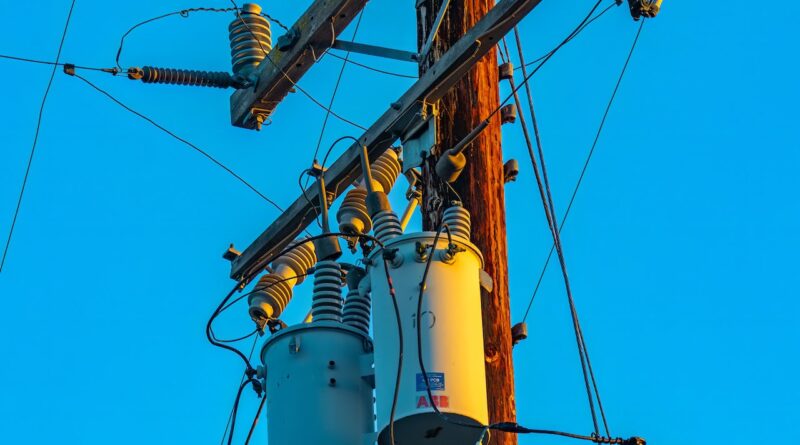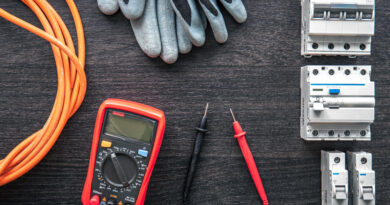Safety at Home: Essential Electrical Safety Audit Tips for Faridabad Residents
Introduction
When it comes to ensuring the safety and well-being of your family, electrical safety is of utmost importance. Faulty electrical systems and appliances can pose significant risks, including electrical shocks, fires, and even fatalities. To protect your home and loved ones, it is crucial to conduct regular electrical safety audits. In this article, we will provide Faridabad residents with essential tips for conducting an effective electrical safety audit to minimize potential hazards and maintain a safe living environment.
Table of Contents
- Understanding the Importance of Electrical Safety
- Conducting a Visual Inspection
- Checking Electrical Connections and Wiring
- Assessing Electrical Appliances
- Testing Ground Fault Circuit Interrupters (GFCIs)
- Evaluating the Electrical Panel
- Ensuring Proper Outdoor Electrical Safety
- Securing Child Safety Around Electrical Outlets
- Creating an Emergency Preparedness Plan
- Hiring a Professional Electrician
- Conclusion
- FAQs (Frequently Asked Questions)
1. Understanding the Importance of Electrical Safety
Electrical safety should never be underestimated. By ensuring a safe electrical system in your home, you protect your family from potential hazards and prevent accidents. Understanding the importance of electrical safety is the first step toward creating a secure living environment.
2. Conducting a Visual Inspection
Start by visually inspecting your home’s electrical system. Look for any signs of wear and tear, exposed wires, or damaged outlets. Check if electrical cords are frayed or overloaded with too many devices plugged into a single outlet. This visual inspection will help identify immediate safety concerns.
3. Checking Electrical Connections and Wiring
Inspect the electrical connections and wiring throughout your home. Ensure that all wires are properly connected, without any loose or exposed parts. Look for signs of overheating, such as discoloration or a burning smell. If you notice any issues, contact a licensed electrician to assess and repair the wiring.
4. Assessing Electrical Appliances
Regularly inspect your electrical appliances for any signs of damage or malfunction. Check power cords, plugs, and switches for wear and tear. Replace damaged or faulty appliances immediately to reduce the risk of electrical accidents.
5. Testing Ground Fault Circuit Interrupters (GFCIs)
GFCIs are crucial safety devices that protect against electrical shocks. Test GFCIs by pressing the “test” button to ensure they are functioning correctly. If the GFCI does not trip or reset, consult an electrician for further inspection and repairs.
6. Evaluating the Electrical Panel
The electrical panel is the heart of your home’s electrical system. Check if the panel is properly labeled, allowing you to identify circuits easily. Ensure there are no signs of corrosion, water damage, or loose connections. If you encounter any issues, contact a professional electrician to assess and upgrade your electrical panel if necessary.
7. Ensuring Proper Outdoor Electrical Safety
If you have outdoor electrical installations, such as lighting or outlets, inspect them regularly. Ensure all outdoor electrical components are weatherproof and properly grounded. Keep them away from water sources and ensure they are in good condition to minimize the risk of electric shock or fire.
8. Securing Child Safety Around Electrical Outlets
Children are naturally curious and may be tempted to insert objects into electrical outlets. To prevent accidents, use childproof outlet covers or install tamper-resistant outlets throughout your home. Educate your children about the dangers of playing with electrical devices and outlets.
9. Creating an Emergency Preparedness Plan
In case of electrical emergencies, it is essential to have an emergency preparedness plan in place. Know the location of your electrical panel and how to shut off power in an emergency. Keep emergency contact numbers readily available and teach your family members how to respond to electrical accidents.
10. Hiring a Professional Electrician
While you can conduct basic electrical safety audits, it is advisable to hire a professional electrician for a comprehensive inspection. A licensed electrician has the expertise and knowledge to identify potential hazards and provide necessary repairs or upgrades to ensure your home’s electrical safety.
Conclusion
Maintaining electrical safety in your home should be a top priority for Faridabad residents. By following the essential electrical safety audit tips outlined in this article, you can minimize the risk of electrical accidents and create a secure living environment for you and your family.
FAQs (Frequently Asked Questions)
Q1: How often should I conduct an electrical safety audit in my home? A1: It is recommended to conduct an electrical safety audit at least once every two years. However, if you notice any electrical issues or experience frequent power surges, it is advisable to conduct an audit sooner.
Q2: Can I perform electrical repairs on my own? A2: It is not recommended to perform electrical repairs unless you are a licensed electrician. Handling electrical systems without proper knowledge and training can be dangerous. Always hire a professional for electrical repairs or installations.
Q3: What should I do if I experience an electrical shock? A3: If you experience an electrical shock, immediately disconnect the power source if safe to do so. Call for medical help and consult a healthcare professional for further guidance.
Q4: How can I prevent electrical fires at home? A4: To prevent electrical fires, avoid overloading electrical outlets, regularly inspect electrical cords for damage, and keep flammable materials away from electrical appliances. Install smoke detectors and have a fire extinguisher readily available.
Q5: Why is it important to hire a licensed electrician? A5: Hiring a licensed electrician ensures that the individual has undergone proper training and possesses the necessary skills and knowledge to handle electrical systems safely. They can accurately assess, repair, and upgrade your home’s electrical system.




